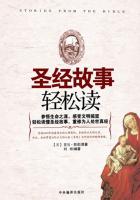The second bounty upon the importation of any of the materials of manufacture, according to the order of time, was that granted by the 21st George II, c.30, upon the importation of indigo from the British plantations.When the plantation indigo was worth three-fourths of the price of the best French indigo, it was by this act entitled to a bounty of sixpence the pound.This bounty, which, like most others, was granted only for a limited time, was continued by several prolongations, but was reduced to fourpence the pound.It was allowed to expire with the end of the session of Parliament which followed the 25th March 1781.
The third bounty of this kind was that granted (much about the time that we were beginning sometimes to court and sometimes to quarrel with our American colonies) by the 4th George III, c.
26, upon the importation of hemp, or undressed flax, from the British plantations.This bounty was granted for twenty-one years, from the 24th June 1764 to the 24th June 1785.For the first seven years it was to be at the rate of eight pounds the ton, for the second at six pounds, and for the third at four pounds.It was not extended to Scotland, of which the climate (although hemp is sometimes raised there in small quantities and of an inferior quality) is not very fit for that produce.Such a bounty upon the importation of Scotch flax into England would have been too great a discouragement to the native produce of the southern part of the United Kingdom.
The fourth bounty of this kind was that granted by the 5th George III, c.45, upon the importation of wood from America.It was granted for nine years, from the 1st January 1766 to the 1st January 1775.During the first three years, it was to be for every hundred and twenty good deals, at the rate of one pound, and for every load containing fifty cubic feet of other squared timber at the rate of twelve shillings.For the second three years, it was for deals to be at.the rate of fifteen shillings, and for other squared timber at the rate of eight shillings; and for the third three years, it was for deals to be at the rate of ten shillings, and for other squared timber at the rate of five shillings.
The fifth bounty of this kind was that granted by the 9th George III, c.38, upon the importation of raw silk from the British plantations.It was granted for twenty-one years, from the 1st January 1770 to the 1st January 1791.For the first seven years it was to be at the rate of twenty-five pounds for every hundred pounds value; for the second at twenty pounds; and for the third at fifteen pounds.The management of the silk worm, and the preparation of silk, requires so much hand labour, and labour is so very dear in America that even this great bounty, I have been informed, was not likely to produce any considerable effect.
The sixth bounty of this kind was that granted by 2nd George III, c.50, for the importation of pipe, hogshead, and barrel staves and heading from the British plantations.It was granted for nine years, from 1st January 1772 to the 1st January 1781.
For the first three years it was for a certain quantity of each to be at the rate of six pounds; for the second three years at four pounds; and for the third three years at two pounds.
The seventh and last bounty of this kind was that granted by the 19th George III, c.37, upon the importation of hemp from Ireland.It was granted in the same manner as that for the importation of hemp and undressed flax from America, for twenty-one years, from the 24th June 1779 to the 24th June 1800.
This term is divided, likewise, into three periods of seven years each; and in each of those periods the rate of the Irish bounty is the same with that of the American.It does not, however, like the American bounty, extend to the importation of undressed flax.
It would have been too great a discouragement to the cultivation of that plant in Great Britain.When this last bounty was granted, the British and Irish legislatures were not in much better humour with one another than the British and American had been before.But this boon to Ireland, it is to be hoped, has been granted under more fortunate auspices than all those to America.
The same commodities upon which we thus gave bounties when imported from America were subjected to considerable duties when imported from any other country.The interest of our American colonies was regarded as the same with that of the mother country.Their wealth was considered as our wealth.Whatever money was sent out to them, it was said, came all back to us by the balance of trade, and we could never become a farthing the poorer by any expense which we could lay out upon them.They were our own in every respect, and it was an expense laid out upon the improvement of our own property and for the profitable employment of our own people.It is unnecessary, I apprehend, at present to say anything further in order to expose the folly of a system which fatal experience has now sufficiently exposed.Had our American colonies really been a part of Great Britain, those bounties might have been considered as bounties upon production, and would still have been liable to all the objections to which such bounties are liable, but to no other.
The exportation of the materials of manufacture is sometimes discouraged by absolute prohibitions, and sometimes by high duties.















